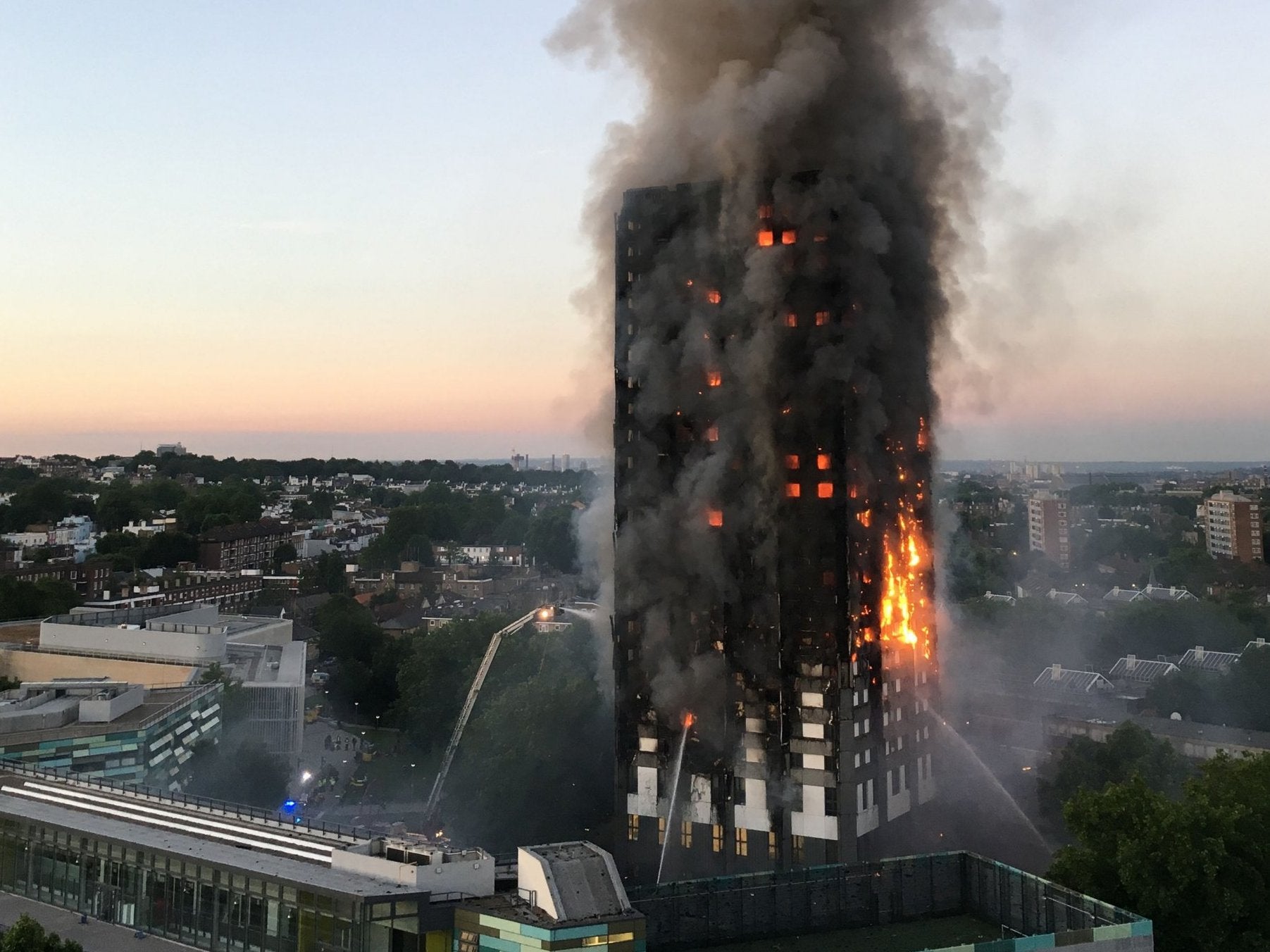Grenfell Tower fire: NHS announces £50m health-screening programme in wake of asbestos fears
'When a local community says you need to raise your game, we respond,' says Simon Stevens

The NHS has said it will fund a £50m screening programme for survivors of the Grenfell Tower fire, following warnings they could have suffered asbestos poisoning.
Senior coroner Dr Fiona Wilcox, who is examining the deaths caused by the fire, wrote to the head of NHS England Simon Stevens in September urging him to take action to stop any more people dying as a result of the inferno.
Citing the long-term health problems suffered by firefighters who attended the 9/11 attack, Dr Wilcox said she was concerned no formal health programme was in place for Grenfell Tower residents and the first responders to the scene.
Grenfell Tower was built in 1974, when asbestos was regularly used as a fire retardant. If inhaled, asbestos can cause a fatal lung disease called mesothelioma.
Most of the 72 people who died as a result of the blaze on 14 June last year are thought to have died from inhaling poisonous smoke.
Announcing the new screening programme, Mr Stevens said the NHS and local health groups would invest up to £10m a year in the service for the next five years.
Former Grenfell Tower residents would be invited to regular “health MOTs” that would would monitor their physical and psychological health, he said.
A mental health service for the fire’s survivors has already screened about 4,000 residents, according to NHS figures. Longer GP appointments have also been available for former residents of the highrise.
Speaking at NHS Providers conference in Manchester on Tuesday, Mr Stevens said: “Since (the Grenfell Tower fire), the NHS has been one of the public services that has most fulfilled the contract between those working in public services and communities reliant on us in their time of need.
“We’ve knocked on more than 4,000 doors, helped 3,800 residents (with) their GP and mental health needs and more than a third of those have gone on to be referred to specialist mental health services.
“Which is why it’s important that when a local community, such as those in North Kensington says ‘you need to raise your game over how the community is supported’, we respond.”
In a separate statement, Mr Stevens said: “For those people who were affected by this horrendous tragedy, their pain is not over and many continue to face real difficulty.
“NHS staff and the local community have been working hard from day one to support the Grenfell community. The NHS was there when people needed us and we’re determined to stay the course. That’s why we are now introducing a new dedicated service to ensure those affected continue to have their health needs fully met.”
Grenfell Tower Inquiry: photos of inside the flat where fire began
Show all 18A public inquiry into the fire at Grenfell Tower is hearing evidence from survivors of the blaze at Holborn Bars in central London. A number of those who have given evidence have said they have suffered breathing problems in the immediate aftermath and in the months after the fire.
Subscribe to Independent Premium to bookmark this article
Want to bookmark your favourite articles and stories to read or reference later? Start your Independent Premium subscription today.


Join our commenting forum
Join thought-provoking conversations, follow other Independent readers and see their replies
Comments